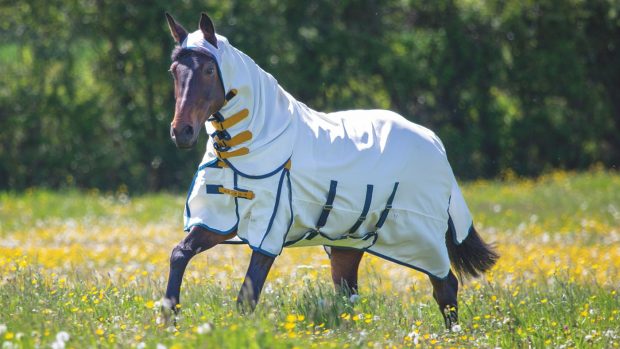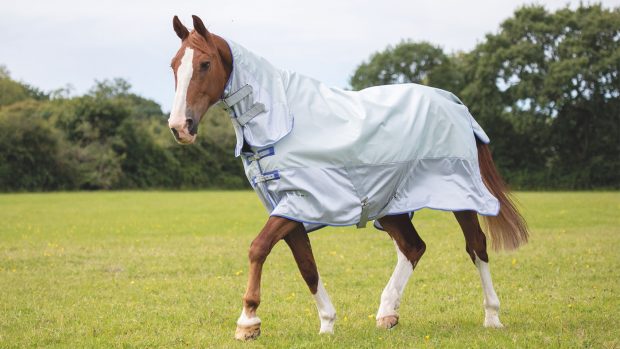Summer shows will have a different aroma this year as fly repellents containing citronella start to disappear from shops.
Under EU legislation described as “a nightmare” by one manufacturer, insecticides containing the substance will be banned from sale from 1 September. One manufacturer estimates that 90% of “natural” fly repellents in the UK contain citronella.
The regulation is part of the Biocidal Products Directive (1998), which contains a long list of substances treated as “guilty until proven innocent”.
Horses occasionally have an allergic reaction to citronella, classed as a “natural chemical”, but no more than to any other ingredient, according to H&H vet Karen Coumbe.
“In my opinion, products containing synthetic pyrethroids [insecticide compounds] such as citronella offer the best protection against flies, alongside keeping fields muck-free,” she said.
Manufacturers could apply to have citronella exempted by submitting evidence of its safety and efficacy. But many believe the cost of doing this could far exceed that of developing an alternative formula.
“We’ve used citronella successfully for years, but if a firm wants to continue using one of the products on the EU list, it has to submit a dossier, including evidence from trials, at huge expense,” said Kate Jones, nutritionist at Natural Animal Feeds (NAF).
“You would be looking at tens if not hundreds of thousands of pounds, and that’s when it becomes unrealistic to pursue.
“Grouping together with other manufacturers to spread the cost is a possibility, but NAF has been developing a citronella-free formulation, which we’re very happy with. It went on sale last year, so we’re happy to pursue that.”
Susie Blundell, product manager at Carr & Day & Martin, which makes fly repellents, said: “From a trade view, the legislation is creating hassle, cost and paperwork. From a consumer view, a fly-repelling ingredient with a good efficacy and safety record will no longer be available.”
Most firms already sell a citronella-free formula, usually containing chemicals, but to fill the impending hole in their natural ranges, manufacturers have been testing alternatives — although they were reluctant to reveal what their new potions contain.
“This affects our biggest-selling products, but we’ve been developing replacements, which will filter in during the summer,” said Helen Dolisznyj from Fly Away. “But it’s a nightmare: it’s as though the EU has banned virtually all essential ingredients for fly repellents.”
Lavender and eucalyptus have also been banned in insecticides, but, according to NAF’s Ms Jones, they are not used in fly sprays. However, NAF does makes products containing tea tree oil, which, although on the EU “guilty” list, is currently under review and may be exempted.
Ms Jones added: “I’ve been assured by the Health and Safety Executive that tea tree oil is OK to use for the moment, but if it is withdrawn we’ll have to start working on other formulas.”
Carr & Day & Martin’s new, citronella-free formula will be available from 1 May.
“It’s even more ridiculous when you consider that a lot of people mix their own fly repellents at much stronger concentrations, using citronella from the chemist,” said Ms Blundell.
The legislation applies only to insecticides produced for sale, so individual concoctions made for private use will not be affected.
|
SUBSCRIBE TO HORSE & HOUND AND SAVE Enjoy all the latest equestrian news and competition reports delivered straight to your door every week. To subscribe for just £1.43 a copy click here >>
|




